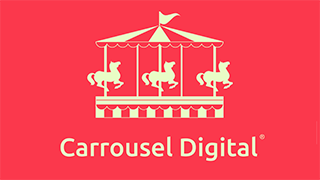Crown Commercial Service’s (CCS) G-Cloud 13 Framework has been around for about six months now. The online catalogue allows customers to buy cloud-based computing services such as hosting software and cloud support. Here are some of its main features
The agreement is available for central government, charities, education, health, local authority, blue light (police, fire, ambulance, search and rescue), devolved administrations, and British overseas territories and offers cloud hosting, cloud software and cloud support.
The framework cannot be used for non-cloud related services, co-location services, bespoke design and development, hardware services or recruitment.
Lots
Lot 1 includes Cloud Hosting and covers cloud platform or infrastructure, which enables buyers to deploy, manage and run software, and provision and use processing, storage or networking resources. Services covered by this lot include: archiving, backup and disaster recovery; compute and application hosting; container service; and content delivery network. Other services include: database; NoSQL database; relational database; data warehousing; load balancing; logging and analysis; message queuing and processing; networking (including Network as a Service); Platform as a Service (PaaS); infrastructure and platform security; distributed denial of service attack (DDOS) protection; firewall; intrusion detection; protective monitoring; search; storage; block storage; and object storage.
Lot 2 is Cloud Software (SaaS) and includes applications which are accessed over the internet and hosted in the cloud. Services covered by this lot include: accounting and finance; analytics and business intelligence; application security; collaborative working; creative, design and publishing; customer relationship management (CRM); electronic document and records management (EDRM); and healthcare. Other services include human resources and employee management; information and communication technology (ICT); legal and enforcement; marketing; operations management; project management and planning; sales; schools, education and libraries; software development tools; transport and logistics.
Lot 3 covers Cloud Support to help set up and maintain cloud software or hosting services. Services covered under this lot include ongoing support; planning; quality assurance and performance testing; setup and migration; security services and training.
There is also a fourth lot for further competition for Cloud Support. The scope is the same as that of Lot 3, but is designed for larger and more complex requirements which are procured through further competition.
Benefits
The framework has several benefits including access to over 40,000 services and over 5,000 suppliers, providing access to the latest technology and innovation.
It offers a quick and easy route to market
with scalable services, so you only pay for what you use.
Using the framework delivers reduced costs and reduced total cost of ownership compared to running your own service in house.
CCS provides advice and guidance on the website. As well as this, there are monthly customer webinars.
Buying
Buyers can use the Digital Marketplace to buy cloud services through the G-Cloud framework.
All public sector organisations, including agencies and arm’s length bodies, can use the Digital Marketplace.
All the suppliers listed have already confirmed information about their company and the way they work and provided information about the services that they offer. However, the financial position of suppliers isn’t checked when they apply to the framework.
When writing out their requirements, buyers should consider the funds available to buy the service, the technical and procurement requirements of the project and the criteria on which the choice will be based. Buyers should also check with their organisation if they need approval to spend money on a service.
Buyers are reminded to keep an audit trail, as a record of what has been done when procuring services. If a contract is awarded through the G-Cloud framework, you must be able to show that the assessment of services was fair and transparent.
Before starting to look for services on the digital marketplace, buyers are advised to write a list of requirements to help decide which search category, keywords and filters to use.
The digital marketplace can be used to search for cloud services – buyers can choose a category and then search for services using keywords and filters. The search can be saved so the results can be exported later.
When doing a search, buyers can download a copy of the category, keywords and filters used, the services found, and the date results were exported. This information can then be added to the audit trail. Records should also be kept on communications with suppliers, including any early market engagement, clarification questions, emails and face-to-face conversations you have.
When performing a search for services on the Digital Marketplace, you must assess all the services in your search results and the assessment must be as fair and transparent
as possible.
Buyers cannot hold a competition to decide the winner, ask suppliers to tender, bid or submit proposals or unfairly exclude any services without referring back to the requirements.
You can contact suppliers to ask them to explain their service description, terms and conditions, pricing or service definition documents. However, you must not negotiate with suppliers about the details of their service. You should always keep a record of any conversations you have with suppliers for your audit trail.
There is guidance available for assessing services and you should choose the service that best meets your budget and requirements.
When choosing the winning service, you should consider: whole life cost, technical merit and functional fit, after-sales service management and non-functional characteristics.
Your final choice should be based on best fit, and not on ruling out suppliers that don’t meet your current contract or an ideal set of terms.
When you have chosen a service, you can award a contract to the supplier. If only one service meets your requirements, you can award a contract to that supplier and you don’t need to do anything else. If none of the services in your search results meet your requirements, a new search is needed. If a contract is not awarded, you should still let CCS know the outcome of your search.
The buyer and supplier must both sign a copy of the contract before the service can be used. The contract can then be downloaded.
The maximum length of a G-Cloud contract is normally 24 months. After the 24 months has passed, a new search will be required. However, if you have the right approvals, in some cases you may be able to extend your contract. Contracts can be extended by one year and then another year.





